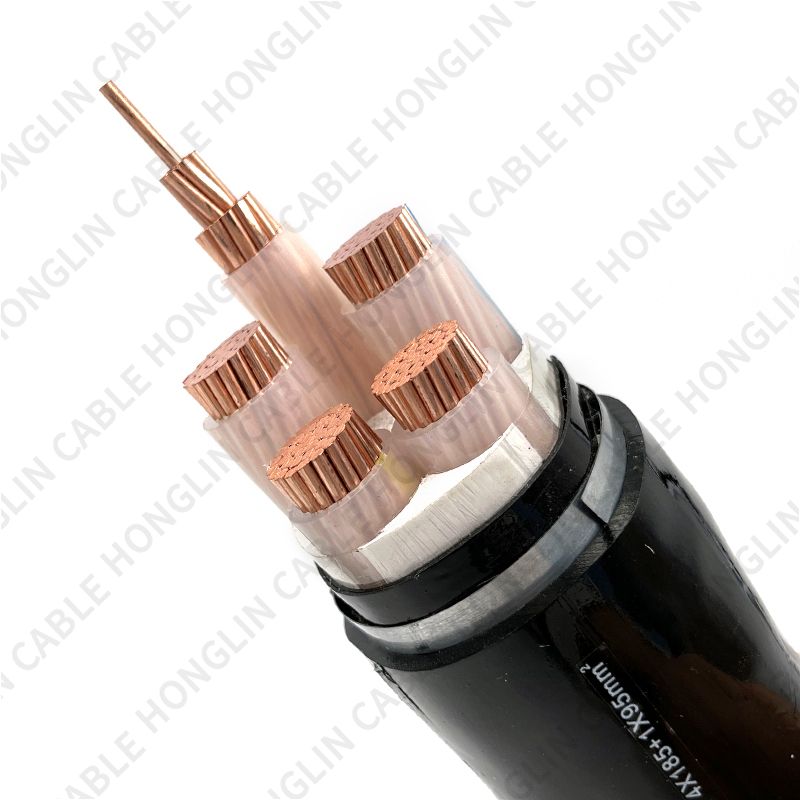
Oct. 24, 2024
Copper conductor power cables are among the most preferred types of electrical wiring solutions due to copper's superior conductivity, durability, and resistance to corrosion. In various industries, from construction to utilities, copper conductor cables play an essential role in delivering power safely and efficiently. If you're considering using copper conductor power cables, particularly for high-performance applications, understanding their benefits and proper usage can help you make an informed decision.

Copper is known for its excellent electrical conductivity, surpassing that of most other metals. This property allows copper conductor cables to transmit electricity with minimal energy loss, making them highly efficient for power distribution. Furthermore, copper is more resistant to heat, which enables it to handle higher current loads without deteriorating, even in extreme conditions. This factor is particularly significant in industrial or high-demand environments where electrical cables are subject to heavy use.
Here are a few reasons why copper conductor power cables are an ideal choice for power distribution:
Copper offers a conductivity level that is approximately 40% higher than aluminum, which means it requires less cross-sectional area to transmit the same amount of current. This property makes copper cables more compact, saving space, especially in tight electrical installations or conduits.
Copper has a natural ability to resist corrosion, especially when compared to other metals. This resistance enhances the longevity of copper cables, reducing maintenance costs over time. In environments prone to moisture or corrosive elements, such as outdoor installations or underground wiring, copper conductor cables offer reliable performance.
Copper is a durable metal, capable of withstanding significant mechanical stress without breaking. This flexibility makes it easier to install and manage copper cables, especially in complex electrical systems or areas with tight bends.
Copper conductor cables can withstand higher temperatures without degradation. This makes them suitable for applications that involve high power loads or extreme environmental conditions, such as in industrial plants, mining, or power stations.
Copper conductor cables are used across a variety of industries, including construction, utilities, and heavy machinery. The cables can be found in both residential and commercial electrical systems, as well as in more specialized applications like underground power distribution, marine environments, and renewable energy projects.
In residential and commercial buildings, copper cables are the standard choice for wiring electrical systems. They are used to transmit power from the electrical service panel to various circuits throughout the structure. Due to their flexibility and corrosion resistance, copper conductor cables ensure that electrical systems in buildings remain reliable for decades.
For underground electrical distribution, copper conductor power cables are often the preferred option. They can be used in wet or dry conditions and are suitable for direct burial or installation in conduit systems. Their durability and resistance to environmental factors make them ideal for underground service entrances and long-distance power transmission.
Industries such as mining, oil, gas, and manufacturing require robust and reliable electrical systems. Copper conductor cables provide the necessary durability to withstand heavy mechanical stress, while their excellent conductivity ensures that power loss is minimized, even over long distances.
As the renewable energy sector grows, copper conductor power cables play a crucial role in solar, wind, and hydroelectric power generation. The cables are used to connect power generation systems to grids, ensuring efficient transmission and distribution of electricity.
Here are some important technical specifications and features you should consider when selecting copper conductor cables:
Conductor Material: Copper, known for high conductivity and flexibility.
Insulation: The insulation material varies based on the application. For example, many copper conductor cables used for underground power distribution come with cross-linked polyethylene (XLP) insulation, which provides excellent resistance to moisture and chemicals.
Voltage Rating: Depending on the application, copper conductor power cables can support voltage ratings up to several thousand volts. This makes them suitable for high-performance industrial applications as well as residential use.
Temperature Rating: Copper cables can operate in a wide range of temperatures, typically up to 90°C in dry locations and even higher in certain environments.
Although aluminum conductor cables are also used in some applications due to their lower cost, they come with certain drawbacks compared to copper cables. Aluminum has a lower conductivity, which means that larger cables are required to transmit the same amount of current as copper. Additionally, aluminum is more prone to corrosion and requires extra protective measures to prevent degradation.
In contrast, copper conductor cables are more compact, easier to install, and provide longer-lasting performance, even in harsh environments. For applications where reliability and efficiency are paramount, copper remains the superior choice.
Copper conductor power cables are an excellent choice for anyone looking to ensure safe, reliable, and efficient power distribution. Their superior conductivity, durability, and resistance to environmental factors make them ideal for a wide range of applications, from residential wiring to industrial power distribution. Whether you’re working on a construction project or upgrading an electrical system, investing in copper conductor cables will provide you with long-term reliability and performance.
If you’re looking for high-quality copper conductor power cables, ensure that you choose products from reputable manufacturers that adhere to industry standards, such as the products offered by leading cable manufacturers like SouthwireSouthwire | HomepageSouthwire | Homepage. By selecting the right copper conductor cable for your needs, you can optimize your electrical system and minimize long-term maintenance costs.